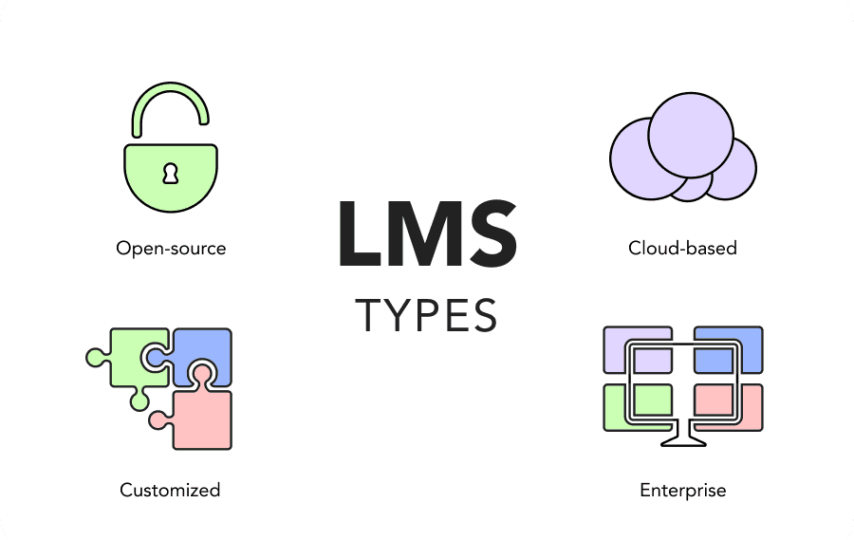Learning management systems (LMS) come in various forms, each designed to meet specific educational needs and preferences. These different types of LMS offer distinct features, functionalities, and deployment options. Visit eloomi.com for more information.
In this, we will explore the common types of LMS and their characteristics, helping educators and institutions choose the most suitable solution for their requirements.
- Cloud-Based LMS:
Cloud-based LMS, also known as Software-as-a-Service (SaaS) LMS, is one of the most prevalent types of LMS. These platforms are hosted on remote servers and accessed via the internet. Cloud-based LMS offers the advantage of easy accessibility, as users can log in and access course materials from any device with an internet connection. They typically require no installation or maintenance, as updates and technical support are managed by the LMS provider. Cloud-based LMS is cost-effective, scalable, and allows for seamless collaboration among learners and instructors.
- Self-Hosted LMS:
Self-hosted LMS, also referred to as on premise LMS, is installed on the institution’s own servers or infrastructure. In this type of LMS, educational institutions have full control over the system’s configuration, customization, and data management. Self-hosted LMS provides greater flexibility and customization options, allowing institutions to align the system with their specific requirements and branding. However, self-hosted LMS requires dedicated IT resources for maintenance, updates, and security.
- Open-Source LMS:
Open-source LMS refers to systems that are developed and distributed under an open-source license. These LMS platforms provide access to the source code, allowing institutions to modify and customize the system to suit their needs. Open-source LMS fosters collaboration and innovation within the educational community, as developers can contribute to the system’s improvement. This type of LMS is often free to use, but institutions need to invest in IT resources for deployment, maintenance, and support.
- Corporate LMS:
Corporate LMS, also known as business LMS or training LMS, is specifically designed to meet the training and development needs of businesses and organizations. Corporate LMS platforms enable companies to deliver employee training programs, compliance courses, and professional development initiatives. These systems often include features for tracking employee progress, generating reports, and integrating with human resources management systems (HRMS). Corporate LMS emphasizes features such as skills assessment, certification management, and content authoring for corporate training purposes.
- Academic LMS:
Academic LMS is tailored for educational institutions, including K-12 schools, colleges, and universities. These LMS platforms cater to the unique requirements of academic settings, such as course management, gradebook functionality, and online collaboration tools for teachers and students. Academic LMS supports the delivery of blended learning, online courses, and virtual classrooms. It often integrates with student information systems (SIS) for seamless data management and administration.
- Mobile LMS:
Mobile LMS focuses on providing a mobile-friendly learning experience, catering to learners who prefer accessing educational content on their smartphones and tablets. Mobile LMS platforms are designed with responsive design principles, ensuring that the user interface adapts to different screen sizes and orientations. Mobile LMS often includes mobile apps that offer offline access to course materials, push notifications, and seamless synchronization between devices. These platforms enable learners to engage in learning anytime, anywhere, and on the go.
- Social LMS:
Social LMS integrates social learning features into the learning experience, promoting collaboration, knowledge sharing, and interaction among learners and instructors.
Conclusion
So, LMS platforms include discussion forums, chat functionalities, social networking features, and content sharing options.








